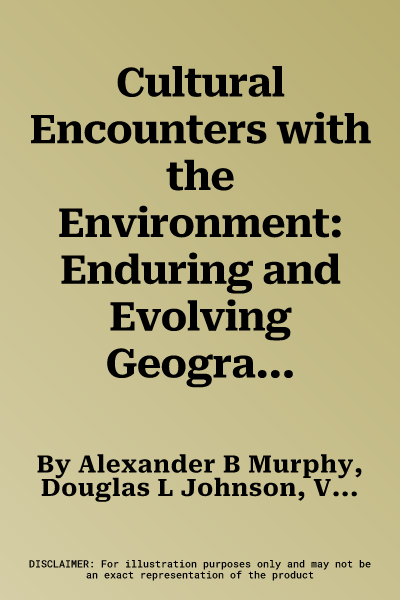Alexander B Murphy
(Author)Cultural Encounters with the Environment: Enduring and Evolving Geographic ThemesPaperback, 5 April 2000

Qty
1
Turbo
Ships in 2 - 3 days
In Stock
Free Delivery
Cash on Delivery
15 Days
Free Returns
Secure Checkout

Print Length
352 pages
Language
English
Publisher
Rowman & Littlefield Publishers
Date Published
5 Apr 2000
ISBN-10
074250106X
ISBN-13
9780742501065
Description
Product Details
Book Format:
Paperback
Country of Origin:
US
Date Published:
5 April 2000
Dimensions:
22.58 x
14.73 x
1.91 cm
ISBN-10:
074250106X
ISBN-13:
9780742501065
Language:
English
Location:
Lanham, MD
Pages:
352
Publisher:
Weight:
453.59 gm